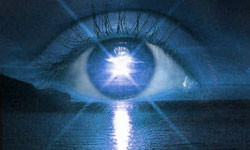As kind of a follow up to my previous post, here’s another thing to try. The great comments on the forum to my last post got me thinking.
The gist of it is: Switch back and forth between visualizing and looking. Here’s how.
Once you have looked at and around an object and determined what you can see, spend several seconds or longer visualizing something you’ve seen. Then look back at the object, or another nearby, and take several seconds to find out if you can see any more details. Then visualize something again, repeating the process.
By doing this, you’re keeping the part of your brain active that’s responsible for visualization. People find that visualizing something, anything, even if it isn’t visualized very clearly, often gives them clearer vision immediately afterwards. But rather than spend a lot of time on visualizing any one thing, just do it for several seconds as suggested, and change it every time to keep yourself interested. I suggested before that the more similar the object you’re visualizing is to what you’re looking at, the better, but the reported experience of many people suggests that visualizing something entirely different is effective. So do whatever you like. What seems to be most important is if you’re doing it at all.
Don’t spend any more time looking for new details than necessary, or in failing to find anything new you might start tensing up and hurting the process. And instead of long periods of visualizing for a minute or longer, visualizing something for just several seconds, with your eyes open if possible, keeps you engaged and might help stop you from getting frustrated.
As Nini pointed out in the above linked thread, you need to visualize something you remember seeing. And it needs to be in context. You’re really remembering the experience of having seen something, so you kind of need to imagine yourself standing wherever it is, in the conditions you remember. If nothing else you can remember some approximate colors and some vague details, maybe of some things you didn’t even intend, and that’s good enough. The better you can remember it, the longer you can spend recalling it with benefit. The same goes with looking for details: the better you see, the longer you can spend looking for more details with benefit. Otherwise keep switching back and forth.
get help on our Facebook Group!

I founded iblindness.org in 2002 as I began reading books on the Bates Method and became interested in vision improvement. I believe that everyone who is motivated can identify the roots of their vision problems and apply behavioral changes to solve them.
